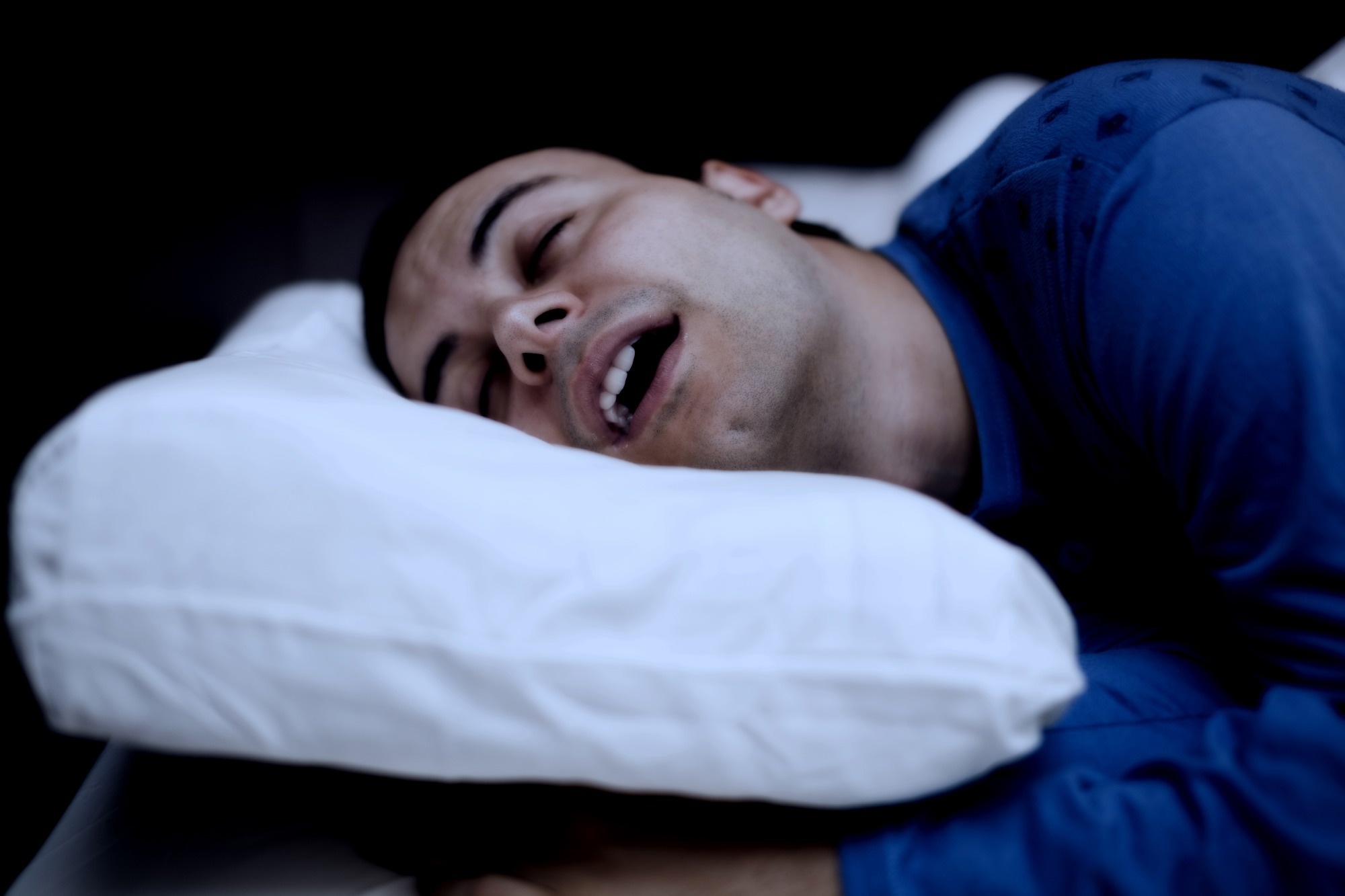The contribution of different sleep stages to memory consolidation is poorly understood. Traditionally, the consolidation of emotional memories has been attributed to rapid-eye movement (REM) sleep. Some studies supported this notion and showed that REM measures correlated with the higher retention of emotional content. This led to the hypothesis that REM offers a unique milieu to facilitate the consolidation of emotional experiences.
However, several studies observed no such correlations, challenging the hypothesis. Lately, evidence implicates non-REM (NREM) sleep in emotional memory consolidation. Moreover, studies have revealed correlations between emotional memory benefits and NREM sleep duration. Additional evidence for the role of NREM sleep in emotional memory consolidation is provided by studies on targeted memory reactivation (TMR).
 Study: Emotional memories are enhanced when reactivated in slow wave sleep, but impaired when reactivated in REM. Image Credit: Minerva Studio / Shutterstock
Study: Emotional memories are enhanced when reactivated in slow wave sleep, but impaired when reactivated in REM. Image Credit: Minerva Studio / Shutterstock

 *Important notice: bioRxiv publishes preliminary scientific reports that are not peer-reviewed and, therefore, should not be regarded as conclusive, guide clinical practice/health-related behavior, or treated as established information.
*Important notice: bioRxiv publishes preliminary scientific reports that are not peer-reviewed and, therefore, should not be regarded as conclusive, guide clinical practice/health-related behavior, or treated as established information.
About the study
In the present study, researchers applied TMR to identify the sleep stage(s) involved in emotional memory consolidation. They recruited young, healthy individuals with no history of neurologic/psychiatric disorders and abnormal sleep patterns. Participants were instructed to ensure a regular sleep cycle for three nights before the experiment and refrain from using alcohol/recreational drugs for 48 hours and caffeine in the morning.
Participants were randomized to emotional slow-wave sleep (E-SWS), emotional REM (E-REM), and neutral SWS (N-SWS) groups. E-SWS and E-REM participants learned emotional items and were subject to reactivation during SWS and REM sleep, respectively. In contrast, N-SWSS groups learned neutral items followed by reactivation in SWS.
During the first visit to the laboratory, participants completed questionnaires on sleep quality and patterns and filled in the Epworth Sleepiness Scale. A modified TMR task was applied, including succession training and practice phases. During training, participants viewed 50 negative/neutral images appearing randomly in different locations on the grid with a one-second sound associated with that image.
During practice, pictures were presented at the center of the grid, and participants were asked to move the image to their original locations. A baseline test (T1), similar to practice, was conducted shortly after learning. Sleep was allowed for two hours after the baseline test while playing white noise. Half the sounds were presented randomly with five-second interstimulus intervals. Sounds continued until the end of REM or SWS.
A retest (T2) was similarly performed after T1. The second visit was scheduled a week later for a delayed retest (T3). Before training/retests, participants filled in the Stanford Sleepiness Scale. Analysis of variance (ANOVA) was used to examine the effect of reactivation. A one-way multivariate ANOVA (MANOVA) compared the sleep stage compositions between groups. Correlations between sleep measures and cueing benefits were examined.
Findings
The final sample comprised 24 individuals in the E-SWS group, 26 in E-REM, and 29 in N-SWS. Cueing benefit at T2 was significantly correlated with %SWS. Moreover, the product of %SWS and %REM (%SWS x %REM), or the time spent in both REM and SWS, was significantly correlated with cueing benefits at T3 in the N-SWS group. No additional correlations between sleep parameters and cueing benefits were identified in any group at T2 or T3.
In 2 x 2 mixed analyses of covariance (ANCOVAs), the researchers observed a significant reactivation x group interaction, with more benefits for reactivated items at T2 in E-SWS than E-REM participants. A follow-up analysis for simple main effects revealed that reactivation was associated with a smaller increase in error for reactivated items among E-SWS participants but a more significant increase in error within the E-REM group.
Finally, the team examined correlations between cueing benefits at T2 and arousal index, sleep fragmentation index, and the duration of wake time after sleep onset in the E-REM group. This analysis found no significant associations. Moreover, no significant associations were evident for other reactivation groups.
Conclusions
Researchers examined whether emotional memory consolidation occurred during REM and found that reactivation of emotional stimuli during REM resulted in poorer recall. By contrast, there was a strong correlation between the memory benefit of reactivation during SWS and the product of REM sleep and SWS times.
Reactivation significantly enhanced memory when adjusted for %SWS x %REM. There were no differences in cueing benefits for emotional and neutral items. The findings suggest that the consolidation of emotional memories required reactivation during SWS and was contingent upon processes occurring in both REM sleep and SWS.

 *Important notice: bioRxiv publishes preliminary scientific reports that are not peer-reviewed and, therefore, should not be regarded as conclusive, guide clinical practice/health-related behavior, or treated as established information.
*Important notice: bioRxiv publishes preliminary scientific reports that are not peer-reviewed and, therefore, should not be regarded as conclusive, guide clinical practice/health-related behavior, or treated as established information.